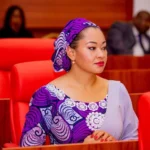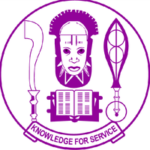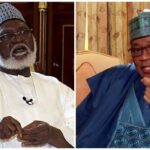By Chinenye Offor
Dr Emeka Offor, former Executive Secretary of the Nigerian Investment Promotion Commission, has described Nigeria’s counterfeit goods crisis as both an economic challenge and a public health emergency requiring urgent action.
In an interview with the News Agency of Nigeria (NAN) on Friday in Abuja, Offor revealed the dangers posed by the influx of counterfeit and substandard products into local and national markets.
He said these products have severe consequences for consumers and threaten the country’s economic stability.
He noted that drastic proposals, such as feeding counterfeiters their own products, might seem extreme, but stressed that penalties for such crimes must match their severity.
Offor identified cities like Aba as epicentres of this crisis, which he said undermines public health and hinders national development.
“According to the Standards Organisation of Nigeria (SON), counterfeit goods account for 40 per cent of products in the Nigerian market, causing annual economic losses exceeding 20 billion dollars.
“The health sector is also reeling from the surge in fake drugs. NAFDAC reports that approximately 17 per cent of pharmaceutical products in circulation are counterfeit, putting millions of lives at risk,” he said.
Offor emphasised the tragic human toll of counterfeit goods, citing hospitals overwhelmed with cases of poisoning and organ failure linked to fake medications.
He shared the story of a woman who unknowingly consumed counterfeit drugs for a chronic condition, leading to severe complications requiring emergency care.
“Substandard electrical products have caused devastating fires, destroying homes and businesses.
“Fake building materials have led to building collapses, and counterfeit auto parts have resulted in fatal road accidents,” he added.
He warned that the crisis poses a dire threat to legitimate manufacturers, with companies like Nigerian Breweries and Unilever reporting revenue losses due to fake versions of their products.
“These counterfeits, often sold at lower prices, make it nearly impossible for legitimate businesses to compete.
“Many companies have shut down, resulting in job losses, reduced tax revenues, and diminished foreign investment,” he said.
Offor also pointed to the influx of cheap, substandard imports, particularly from China, often entering Nigeria through porous borders and corrupt customs practices.
“The World Bank estimates that Nigeria loses about 15 per cent of its potential GDP growth annually due to counterfeit products and related illegal trade,” he said.
The healthcare system, he added, bears the brunt of the counterfeit crisis, with hospitals treating increasing numbers of patients affected by toxic cosmetics, fake drugs, and other counterfeit goods.
While agencies such as NAFDAC and SON have intensified their efforts, Offor noted that their resources remain insufficient.
“In 2023, NAFDAC reportedly destroyed counterfeit goods worth ₦4 billion, but he said this represents only a fraction of the problem. Corruption continues to undermine regulatory enforcement”.
Offor called for a comprehensive and coordinated approach to tackling the counterfeit crisis.
“Only through joint efforts by the government, industry, and consumers can Nigeria stem the tide of counterfeit products and protect its economy and public health,” he said.
He stressed the need for judicial reforms to ensure swift prosecution of offenders, with severe penalties such as long prison sentences for counterfeiters.
He also emphasised the role of technology in combating the issue.
“The government must increase funding for regulatory bodies, provide modern technology for detecting counterfeit products, and expand enforcement powers.
“A national product verification system using QR codes or blockchain technology could allow consumers to verify the authenticity of products.
“Manufacturers should also invest in anti-counterfeiting measures such as holographic labels and track-and-trace systems,” he said.
Offor noted the importance of public education, urging consumers to be aware of the risks associated with counterfeit goods and how to identify them.
He also called for strengthened border controls and better collaboration with neighbouring countries to reduce the influx of fake products.
“Trade associations should establish quality certification programmes, and the government should incentivise local manufacturers to adopt international quality standards.
“Enhanced surveillance technology and regional cooperation will also be key to addressing the crisis,” he said.
Offor urged all stakeholders to take decisive action to safeguard Nigeria’s economy and public health from the dangers posed by counterfeit goods. (NAN) (www.nannews.ng)
Edited by Kadiri Abdulrahman












